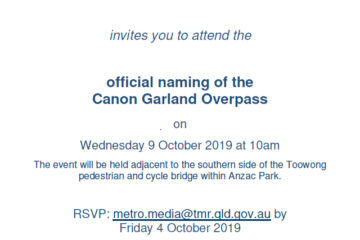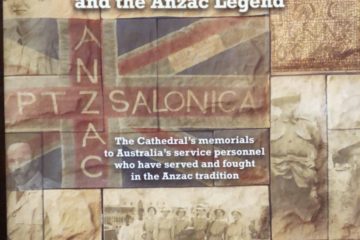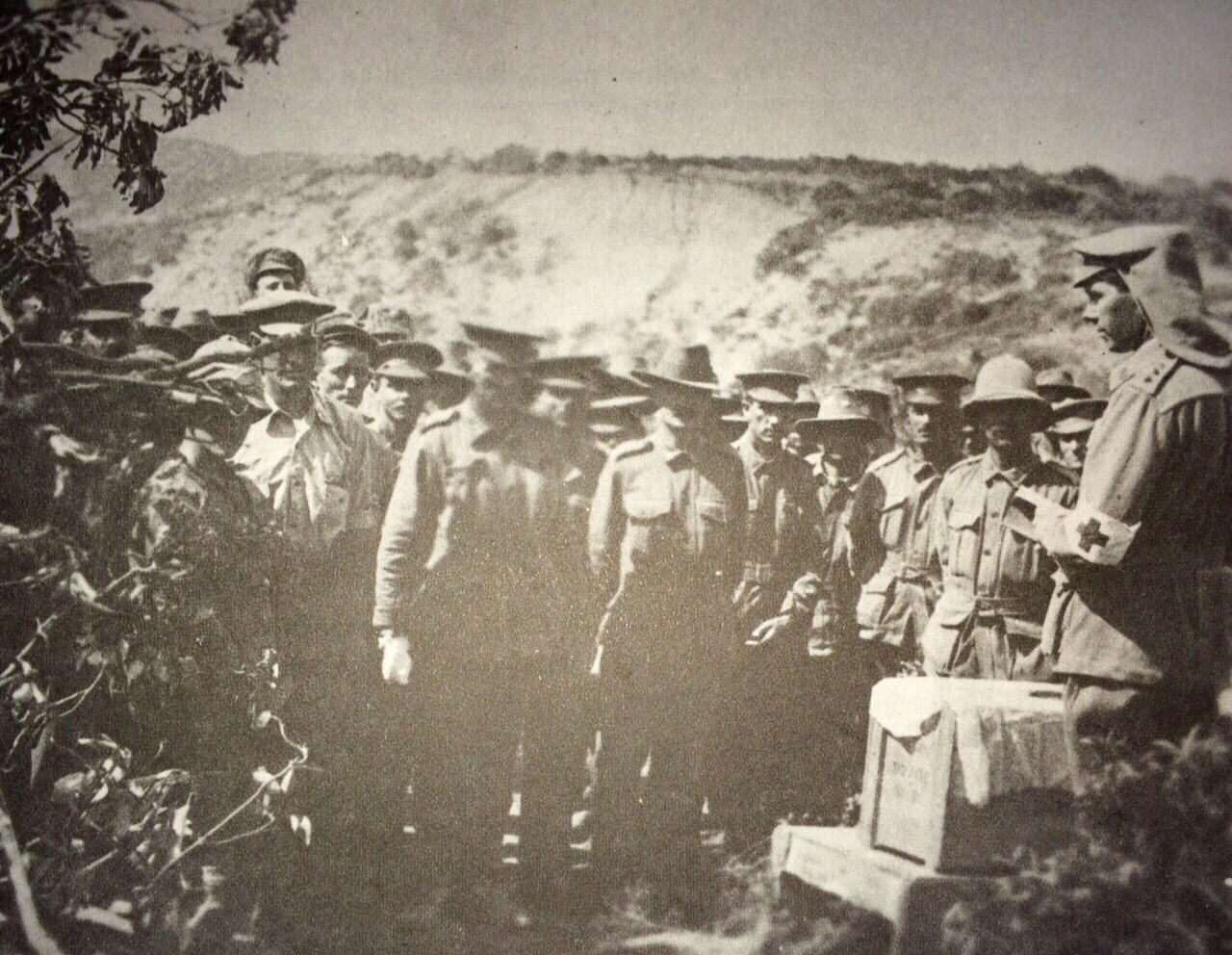Eleventh time at Toowong
AT TOOWONG
Ceremony at
Cross of Sacrifice.
PAYING eleven tributes of flowers, the newly-cleaned Cross of Sacrifice and Stone of Remembrance in the Toowong Cemetery had an outer frame of reverent men, women and children who had come to honour The Fallen at a memorial service conducted by Canon D.J. Garland [ David John Garland ].
In his address, Canon Garland emphasised the qualities of sacrifice, heroism and endurance displayed by the Anzacs and said that there should be applied to the nation in its present difficulties.
The scene was most impressive, parents, widows and children with other relatives of fallen heroes arriving from an early hour with floral tributes which gradually mounted into a beautiful base for both the Cross and the Stone.
Canon Garland was assisted by Rev. N. Bertram [ Neil Colin Campbell Bertram ], and in the procession from the gate of the cemetery, to the Stone of Remembrance, the cross was carried by Mr. Harold Low MM. Mr. J.F. Maxwell MLA [ James Francis Maxwell ] represented the Premier (Mr. A.E. Moore) [ Arthur Edward Moore ].
The Lord Mayor (Alderman A. Watson) [ Archibald Watson ] laid a wreath at the foot of the Cross on behalf of the Brisbane City Council. Earlier he had placed, one at the Toowong Memorial.
During the service hymns were sung “The Last Post” was sounded and at the conclusion “The Dead March” was played by the Windsor Band.
CANON GARLAND’S ADDRESS.
Canon Garland said that the eleventh time they had gathered on this day of solemn remembrance and many of those present had not missed one gathering in those 11 years.
Gratitude should ring eternal in the human heart — gratitude for those who died for them; and they should be remembered on wings of love before God, and so long as Australia lasted they would be remembered.
— from page 10 of “The Week” (Brisbane) of 29 April 1931.
ANZAC DAY: 1931
To the Memory
of Gallant Men
I.
Over the broad green plains, rich with the bounty of summer’s flooding,
Sing the brave larks on the edge of a cloud;
Down to the seaway, through valleys in mantles of autumn’s budding,
Bend the quick streams as with spirit endowed.
And these are our plains and these our valleys,
And these are our birds and these our streams,
But far lie our mates, the makers of sallies,
And beside them, our mates, the dreamers of dreams.
II.
From the new cities, tense with the conflict of laughter and weeping,
Beats music of building, triumphantly loud;
Fast to the shorelines, to frustration, come gallantly leaping
Great waves for the joy of the sun-loving crowd.
And these are our cities, and these our marges,
And these our forges, and these our throngs,
But far lie our mates, the leaders of charges,
And beside them, our mates, the singers of songs.
III.
Rest from our labour, the seeking, the getting;
Rest from our labour, and bow down the head;
Whether at rising, at noon, or at setting,
They were sun lovers — and now they are dead.
COLIN WILLIAM HUGHIE BINGHAM (1898-1986).
PICTURED ABOVE: This artwork accompanied the words of Bingham’s poignant poem. Together they appeared on page 10 of “The Week” (Brisbane) on 29 April 1931


